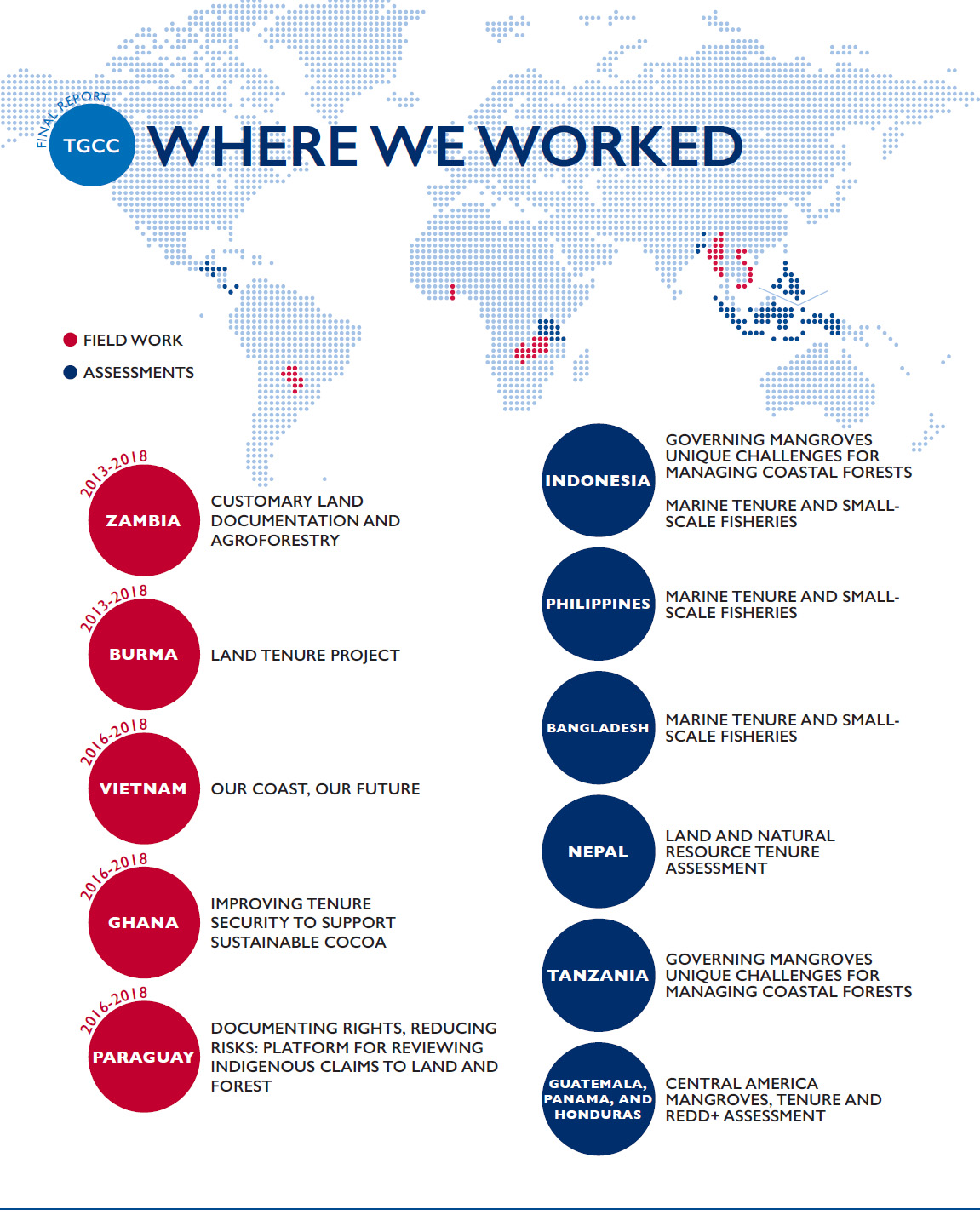The Tenure and Global Climate Change (TGCC) program carried out evidence-based interventions around community-based, participatory land and resource documentation to build local self-reliance and economic prosperity for marginalized and vulnerable populations. By building platforms for communication and conflict resolution among stakeholders, including local communities, government, and the private sector, TGCC identified pragmatic solutions to strengthen land and resource rights, implemented through partnerships with local civil society organizations. Between 2013 and 2018, TGCC achieved the following:
5
Field pilot interventions implemented across five countries and three continents
604
Communities mapped their boundaries and resources through bottom up participatory processes
14,871
Household land certificates produced and managed by customary leaders in Zambia covering 190,297 hectares (52 percent included female landholders and 20 percent included exclusively female landholders)
145,937
Hectares of land placed under improved natural resource management
61,590
Tons of greenhouse gas emissions reduced through agroforestry and two additional deforestation-focused partnerships through Tropical Forest Alliance 2020
19
Policy and legislative processes supported, including two Land Policies incorporating unprecedented consultation for Burma and Zambia
Partnerships with international businesses and national and global platforms to encourage integration of land tenure lessons into business practices
Donor and private sector coordination led to leveraging of USAID pilot methodologies for future replication in five countries
Spatial data on community land rights integrated into publicly accessible platforms in three countries
3
Toolkits developed for household and community land documentation and spatial planning
19
Local land and resource tenure assessments conducted across thirteen countries
11
Civil society organizations supported to carry out mapping with their constituents
152
Public presentations of results and impacts to global, US, and host country communities of practice on climate change mitigation and adaptation, as well as land tenure and property rights


